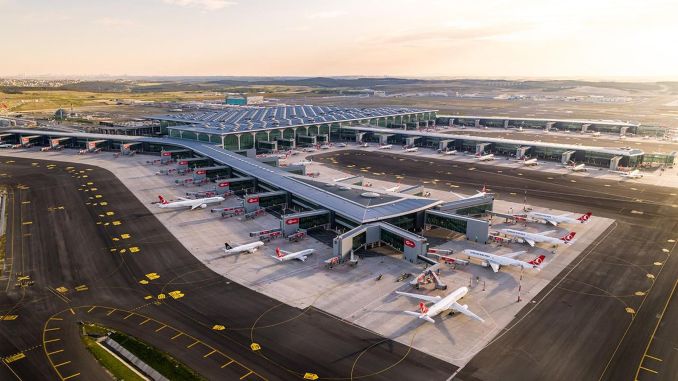
Istanbul Airport was awarded “Europe's Most Efficient Airport with more than 40 million passengers per year” by the world's leading aviation researchers from the Air Transport Research Association (ATRS).
Istanbul Airport, the world's largest airport and the region's most important global hub with an annual passenger capacity of 42 million, whose construction was completed in a record 90 months, continues to receive awards from respected institutions of the aviation industry for its strong infrastructure, efficient operation, superior technology and outstanding travel experience. is doing.
The Air Transport Research Association (ATRS), operating within the scope of the World Conference on Transportation Research (WCTRS), chose Istanbul Airport as the “Most Efficient Airport in Europe” in the category of carrying more than 40 million passengers. Istanbul Airport received full marks from the research criteria in which management strategies and performance measurements such as efficiency, capacity, operational efficiency, unit cost, competitiveness in cost were meticulously examined.
Efficiency policies were appreciated…
Air Transport Research Association (ATRS) researchers participated in the Annual Global Airport Performance Comparison Project held at Embry-Riddle Aeronautical University in Florida, USA, under the guidance of a team of 16 including leading academics from Asia Pacific, Europe and North America. hosted. The airports that will be awarded within the scope of the project were determined according to their rank in their regions and size classes, as measured by the Residual Variable Factor Efficiency (R-VFP) Index.
The award-winning airports at the 26th ATRS World Conference, held online between 29-2021 August 24, were announced together with the ATRS airport comparison report, which summarizes the efficiency of airports around the world. There was a wide participation from all segments of the aviation industry, including airline companies, airports, air traffic control and aviation executives, bureaucrats, consultants and academics.
Commenting on Istanbul Airport being deemed worthy of the “Europe's Most Efficient Airport” award, IGA Airport Operations Technical Services Deputy General Manager Fırat Emsen said; “Every award we win is very valuable as it shows that our achievements are followed with admiration in the international arena. The smooth operation of the 2019-hour transfer from Atatürk Airport to Istanbul Airport in 33, our efficiency policies and the opening of our facilities without any disruption in the operation of our airline companies were appreciated by the world's leading aviation researchers. We implement our efficiency policies, which we started during the construction phase of Istanbul Airport and continued during the operation phase, thanks to our trained teams at every stage of our business. Innovation, technology, digitalization, system and operation integrations, and rapid decision-making are at the forefront at Istanbul Airport, and we have created a perfectly functioning system with the efficiency we provide. As the Gateway to the World – Istanbul Airport, we will continue to carry out successful and award-winning projects.” used the phrases.
Who is the Air Transport Research Association (ATRS)?
The Air Transport Research Association (ATRS) was established in 1995 as a special interest group belonging to the World Transport Research Association Conference. The Association's Board of Directors consists of scientists from many different universities, led by Martin Dresner, a professor at the University of Maryland Robert H. Smith School of Business. ATRS is headquartered at the University of British Columbia (UBC) Sauder School of Business in Vancouver, Canada. Prepared report; It performs performance measurement and comparison of many important aspects of airport operations, including efficiency and adequacy, competitiveness in unit cost and cost, financial results and airport fees. The report also examines management strategies as well as the relationship between various performance measures and airport characteristics to better understand the observed differences in airport performance.


Be the first to comment